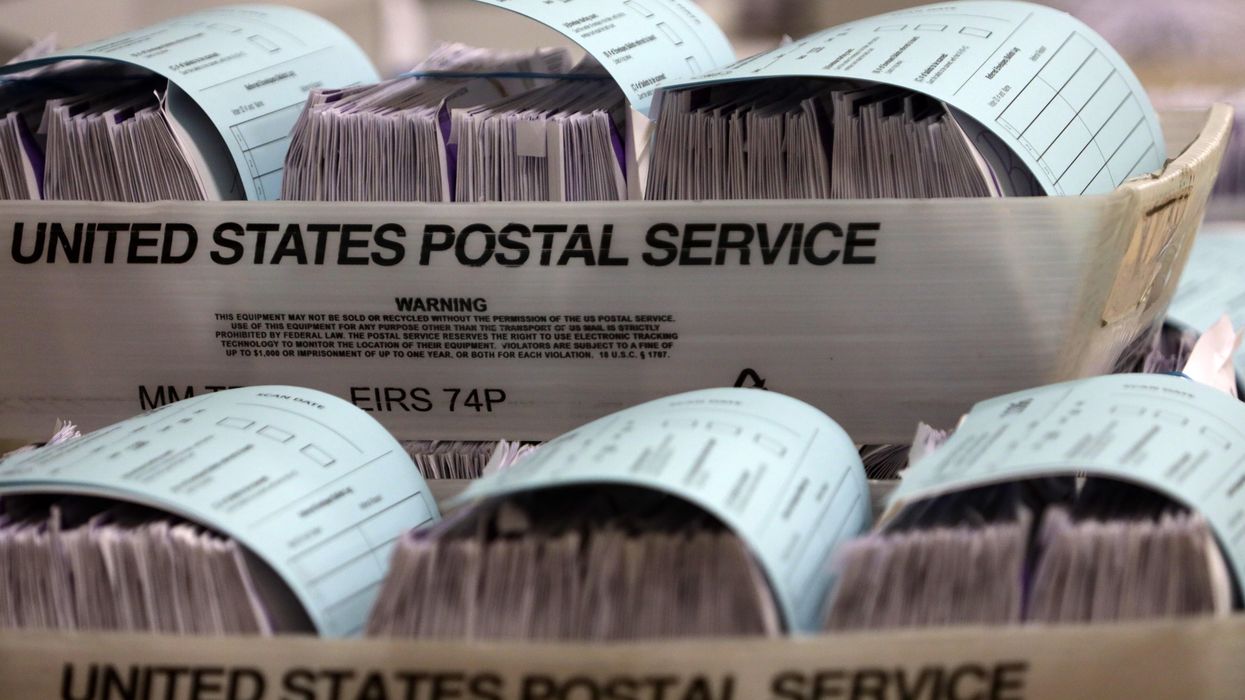When Louis DeJoy became postmaster general in 2020, Democrats and vote-by-mail advocates feared the Trump appointee would act to slow the Postal Service's processing and delivery of election materials, even as demand for mail ballots surged during the pandemic.
But DeJoy told Congress in August that ballots would be delivered on time, and a new report from the USPS inspector general proves he largely kept his word.
According to the report, 94 percent of trackable election mail — such as ballots and voter registration applications — was delivered within the expected service window of 2-5 days for first-class mail, and even for some election mail that was sent as a lower class.
While the Postal Service did not hit its on-time delivery goal of 96 percent for election mail, the report noted that, thanks to prioritization by the agency, such mail exceeded on-time processing of other first-class mail by more than 5 percentage points and showed an 11-point increase over 2018.
"The Postal Service prioritized processing of Election Mail during the 2020 general election, significantly improving timeliness over the 2018 mid-term election even with significantly increased volumes of Election Mail in the mailstream," the report states. "Although timeliness was slightly below goals, proper handling and timely delivery of all Election Mail, especially ballots, was the number one priority of the Postal Service."
From Sept. 1 to Nov. 3, USPS processed 134 million pieces of election mail, but only 53 percent could be tracked for performance. The remaining pieces lacked unique barcodes — which are applied at the discretion of state or local elections boards — or were not scanned properly.
According to the U.S. Elections Project, more than 92 million mail ballots were requested or proactively sent to voters in 2020, and more than 65 million were returned by mail.
The Postal Service took a number of steps to increase election mail performance, according to the report, including:
- Treating all election mail as first-class, even if sent as marketing mail, pre-approving overtime during a critical stretch around Election Day and providing extra transportations services. (These steps were mandated by a court order.)
- Expediting delivery of ballots as Express Mail in the final week of voting.
- Speeding up postmarking and sorting.
While election mail performed better, political mail (content created by candidates, campaigns and parties for political purposes) went the other way. Such mail was down 3 points from 2018, showing a 92 percent on-time rate but matching the standard for marketing-class mail.




















Trump & Hegseth gave Mark Kelly a huge 2028 gift